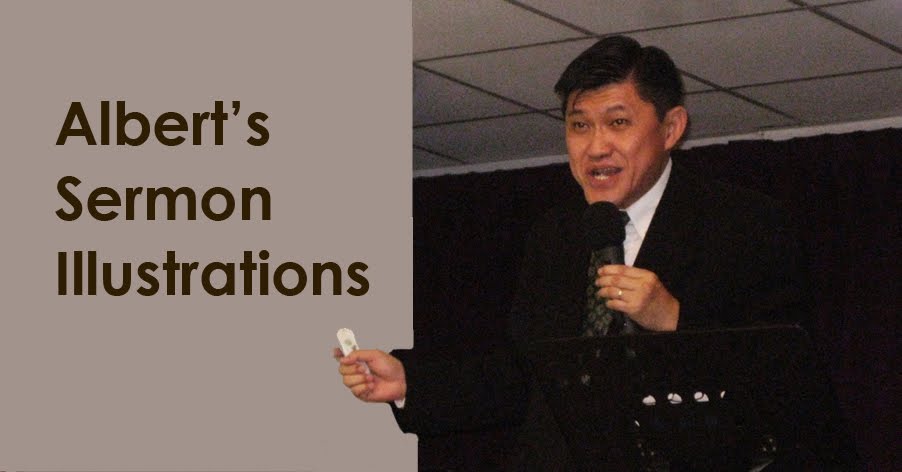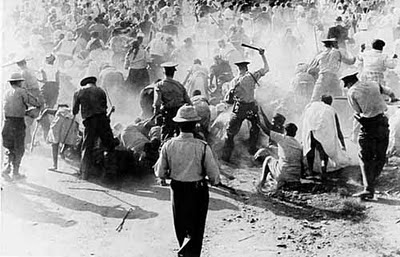Once upon a time, two brothers who lived on adjoining farms fell into conflict. It was the first serious rift in 40 years of farming side-by-side, sharing machinery and trading labor and goods as needed without a hitch.
Then the long collaboration fell apart. It began with a small misunderstanding and it grew into a major difference and finally, it exploded into an exchange of bitter words followed by weeks of silence.
One morning there was a knock on John's door. He opened it to find a man with a carpenter's toolbox. "I 'm looking for a few days' work," he said. "Perhaps you would have a few small jobs here and there I could help with? Could I help you?"
"Yes," said the older brother. "I do have a job for you. Look across the creek at that farm. That's my neighbor. In fact, it's my younger brother! Last week there was a meadow between us. He recently took his bulldozer to the river levee and now there is a creek between us. Well, he may have done this to spite me, but I'll do him one better. See that pile of lumber by the barn? I want you to build me a fence an 8-foot fence -- so I won't need to see his place or his face anymore."
The carpenter said, "I think I understand the situation. Show me the nails and the post-hole digger and I'll be able to do a job that pleases you."
The older brother had to go to town, so he helped the carpenter get the materials ready and then he was off for the day. The carpenter worked hard all that day -- measuring, sawing and nailing. About sunset when the farmer returned, the carpenter had just finished his job.
The farmer's eyes opened wide, his jaw dropped. There was no fence there at all.
It was a bridge .. A bridge that stretched from one side of the creek to the other! A fine piece of work, handrails and all! And the neighbor, his younger brother, was coming toward them, his hand outstretched..
"You are quite a fellow to build this bridge after all I've said and done."
The two brothers stood at each end of the bridge, and then they met in middle, taking each other's hand. They turned to see the carpenter hoist his toolbox onto his shoulder.
"No, wait! Stay a few days. I've a lot of other projects for you," said the older brother.
"I'd love to stay on," the carpenter said, "but I have many more bridges to build."
Then the long collaboration fell apart. It began with a small misunderstanding and it grew into a major difference and finally, it exploded into an exchange of bitter words followed by weeks of silence.
One morning there was a knock on John's door. He opened it to find a man with a carpenter's toolbox. "I 'm looking for a few days' work," he said. "Perhaps you would have a few small jobs here and there I could help with? Could I help you?"
"Yes," said the older brother. "I do have a job for you. Look across the creek at that farm. That's my neighbor. In fact, it's my younger brother! Last week there was a meadow between us. He recently took his bulldozer to the river levee and now there is a creek between us. Well, he may have done this to spite me, but I'll do him one better. See that pile of lumber by the barn? I want you to build me a fence an 8-foot fence -- so I won't need to see his place or his face anymore."
The carpenter said, "I think I understand the situation. Show me the nails and the post-hole digger and I'll be able to do a job that pleases you."
The older brother had to go to town, so he helped the carpenter get the materials ready and then he was off for the day. The carpenter worked hard all that day -- measuring, sawing and nailing. About sunset when the farmer returned, the carpenter had just finished his job.
The farmer's eyes opened wide, his jaw dropped. There was no fence there at all.
It was a bridge .. A bridge that stretched from one side of the creek to the other! A fine piece of work, handrails and all! And the neighbor, his younger brother, was coming toward them, his hand outstretched..
"You are quite a fellow to build this bridge after all I've said and done."
The two brothers stood at each end of the bridge, and then they met in middle, taking each other's hand. They turned to see the carpenter hoist his toolbox onto his shoulder.
"No, wait! Stay a few days. I've a lot of other projects for you," said the older brother.
"I'd love to stay on," the carpenter said, "but I have many more bridges to build."
















